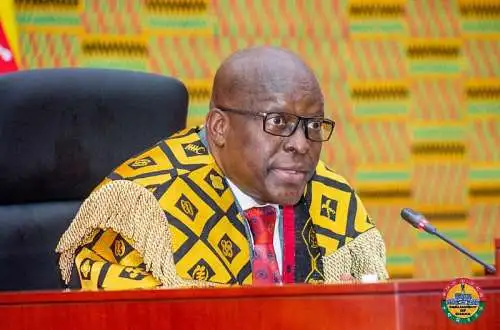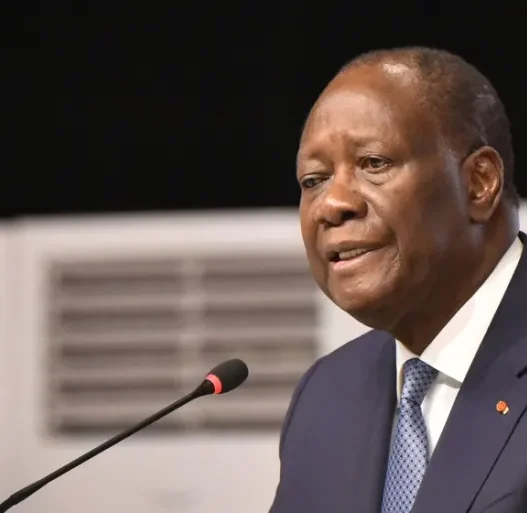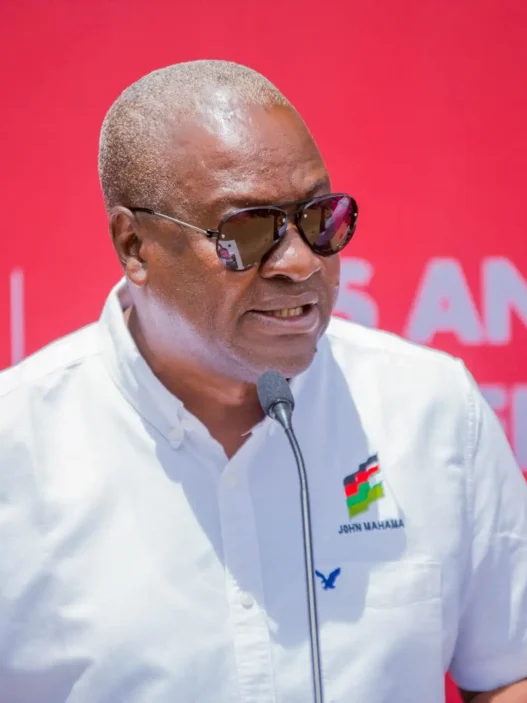Speaker of Parliament, Alban Sumana Kingsford Bagbin, recently articulated a critical stance on the qualifications necessary to assume the role of a Member of Parliament (MP). His remarks emphasize the constitutional and procedural requirements that must be fulfilled before an MP-elect transitions to a sworn Member of Parliament. Speaker Bagbin’s statement that “not properly so-called MPs-elect are not qualified to be sworn in by me” underscores his role as a gatekeeper in maintaining the sanctity of parliamentary integrity.
This commentary explores the implications of Speaker Bagbin’s statement in the context of the Electoral Commission’s (EC) recent decision to rerun elections at Abokobi Women’s Development Centre 2 in the Dome Kwabenya constituency.
The Speaker’s Gatekeeping Role: A Constitutional Mandate
1. Three Pillars for Assuming Office
Speaker Bagbin highlighted the tripartite requirements for becoming an MP:
- Election by the Voter: Mandated under Article 42 of Ghana’s Constitution, every citizen has the right to vote to choose their representatives.
- Declaration by the Electoral Commission: The EC, under Article 45(c), is tasked with declaring results to determine MPs-elect.
- Swearing-In by the Speaker: Article 97(1)(g) requires MPs to be sworn in by the Speaker to assume full parliamentary duties.
These steps underscore the interdependence of electoral and parliamentary processes. Failure to adhere to any of these requirements renders the transition incomplete.
2. Legitimacy and Accountability
The Speaker’s assertion that improperly declared MPs-elect are ineligible for swearing-in reinforces the principle of legitimacy. His role as the gatekeeper ensures that only those who have satisfied all constitutional and procedural requirements are admitted to Parliament.
This position is particularly relevant in the context of Dome Kwabenya, where disputed results have led to the EC’s decision to rerun elections.
Speaker Bagbin’s Comments in Light of Dome Kwabenya
1. The Impact of Rerun Decisions on Parliamentary Eligibility
The case of Dome Kwabenya raises important questions about the legitimacy of declarations made amidst procedural discrepancies. Elikplim Akurugu of the NDC, who was initially declared the winner, holds the status of MP-elect but cannot assume office until the process is conclusively resolved.
Speaker Bagbin’s position suggests that:
- If the rerun confirms a new winner, the previous declaration becomes null and void.
- The EC must ensure that its declarations are legally and procedurally sound, as any error in this regard undermines the Speaker’s ability to perform his constitutional duties.
2. Nullifying Irregular Re-Collations and Re-Declarations
Speaker Bagbin’s critique of “re-collations and re-declarations” being null and void highlights the risks of administrative lapses by the EC. These actions, if not conducted transparently and within the confines of the law, can:
- Erode public confidence in electoral outcomes.
- Create legal uncertainties that delay the parliamentary swearing-in process.
In Dome Kwabenya, the EC’s decision to rerun the election at Abokobi Women’s Development Centre 2 could be seen as an effort to address such concerns. However, the absence of a clear legal basis for this decision raises further questions about its validity.
Legal and Institutional Implications
1. Ensuring Procedural Compliance
Speaker Bagbin’s remarks underscore the importance of strict adherence to procedural rules. The EC must align its actions with the Public Elections Regulations, 2020 (C.I. 127), and avoid decisions that could be deemed arbitrary. This includes:
- Conducting forensic audits to resolve discrepancies.
- Seeking judicial guidance where necessary.
2. The Role of the Judiciary
The judiciary serves as the ultimate arbiter in electoral disputes. In cases where the EC’s declarations are contested, the courts have the authority to determine the validity of results. This reinforces the Speaker’s position that only properly declared MPs-elect can be sworn in.
3. Strengthening Electoral Reforms
The Dome Kwabenya controversy highlights systemic gaps in Ghana’s electoral process. Speaker Bagbin’s comments should serve as a catalyst for:
- Reforming electoral laws to address ambiguities in rerun criteria.
- Enhancing the EC’s operational capacity to prevent documentation lapses.
Conclusion
Speaker Bagbin’s assertion that improperly declared MPs-elect are ineligible for swearing-in emphasizes the critical interplay between the EC’s administrative role and the Speaker’s constitutional responsibilities. His comments reflect a commitment to safeguarding the integrity of Ghana’s parliamentary processes.
In the case of Dome Kwabenya, the EC’s decision to rerun the election at Abokobi Women’s Development Centre 2 must be scrutinized to ensure that it aligns with legal and procedural standards. The declared winner, Elikplim Akurugu, has the right to contest this decision, as her status as MP-elect hinges on the legitimacy of the rerun.
Ultimately, Speaker Bagbin’s role as the gatekeeper underscores the need for rigorous electoral and parliamentary standards. His remarks serve as a timely reminder that democracy is not merely about elections but about upholding the rule of law and institutional accountability.




















